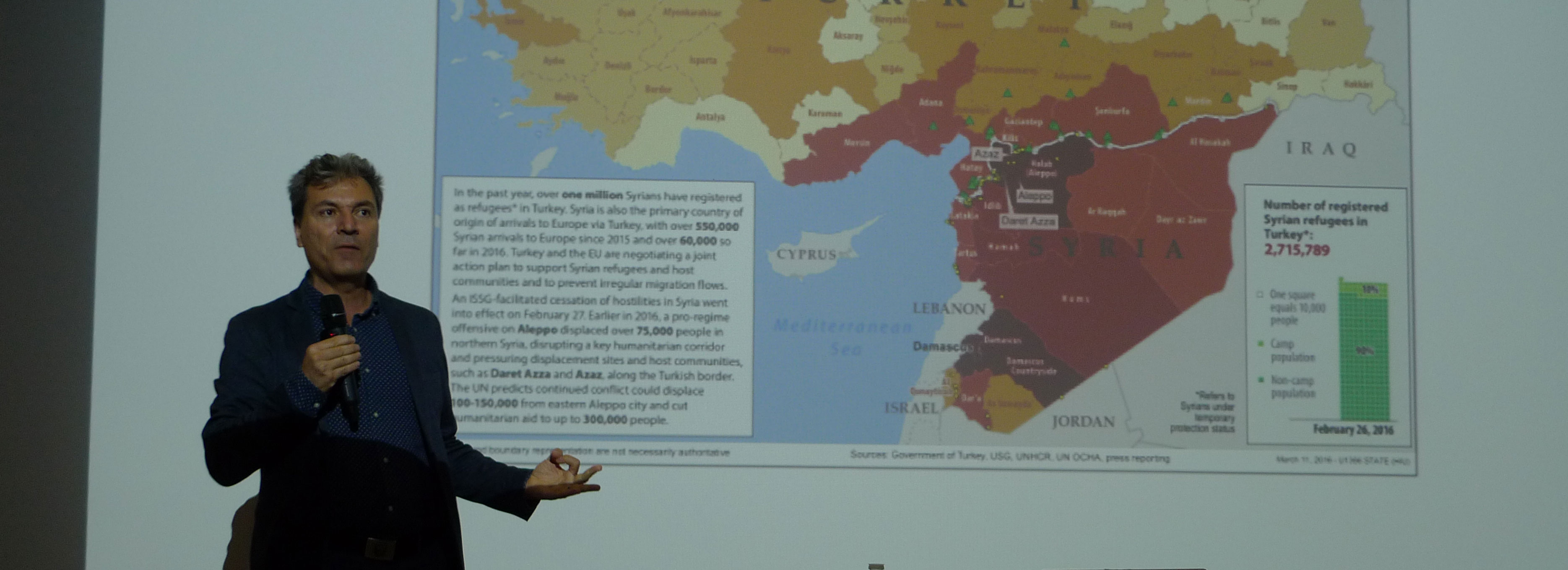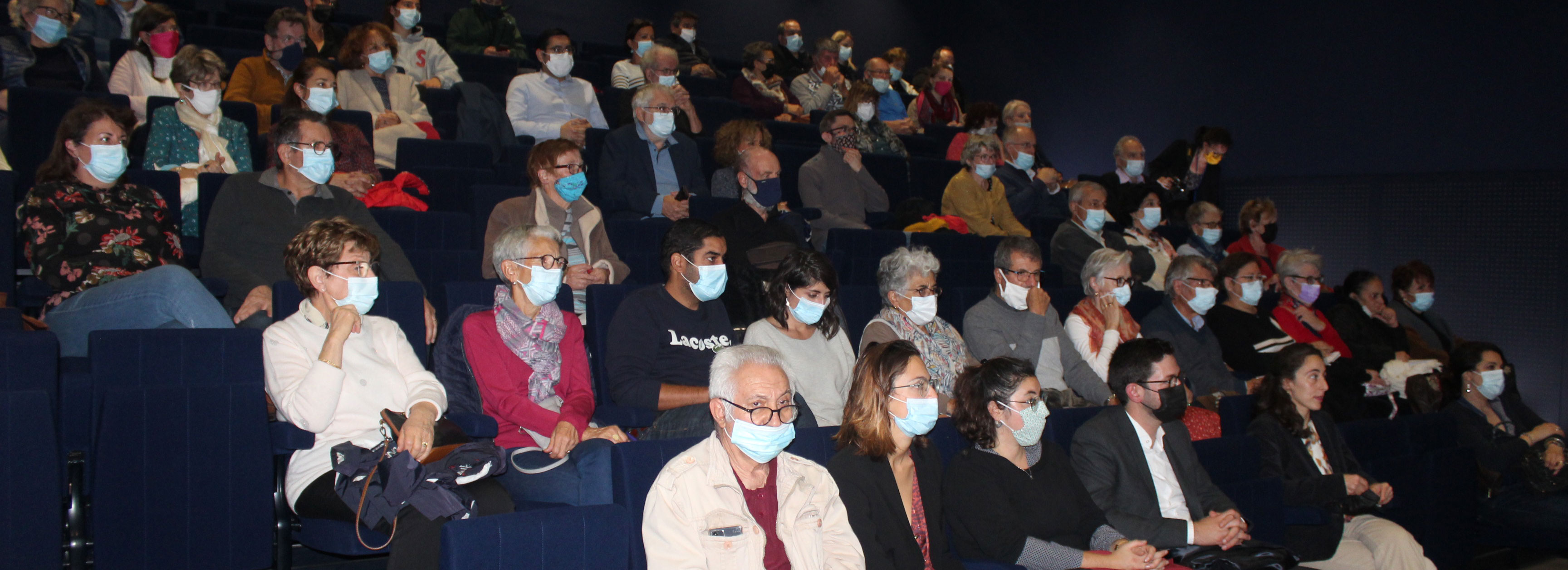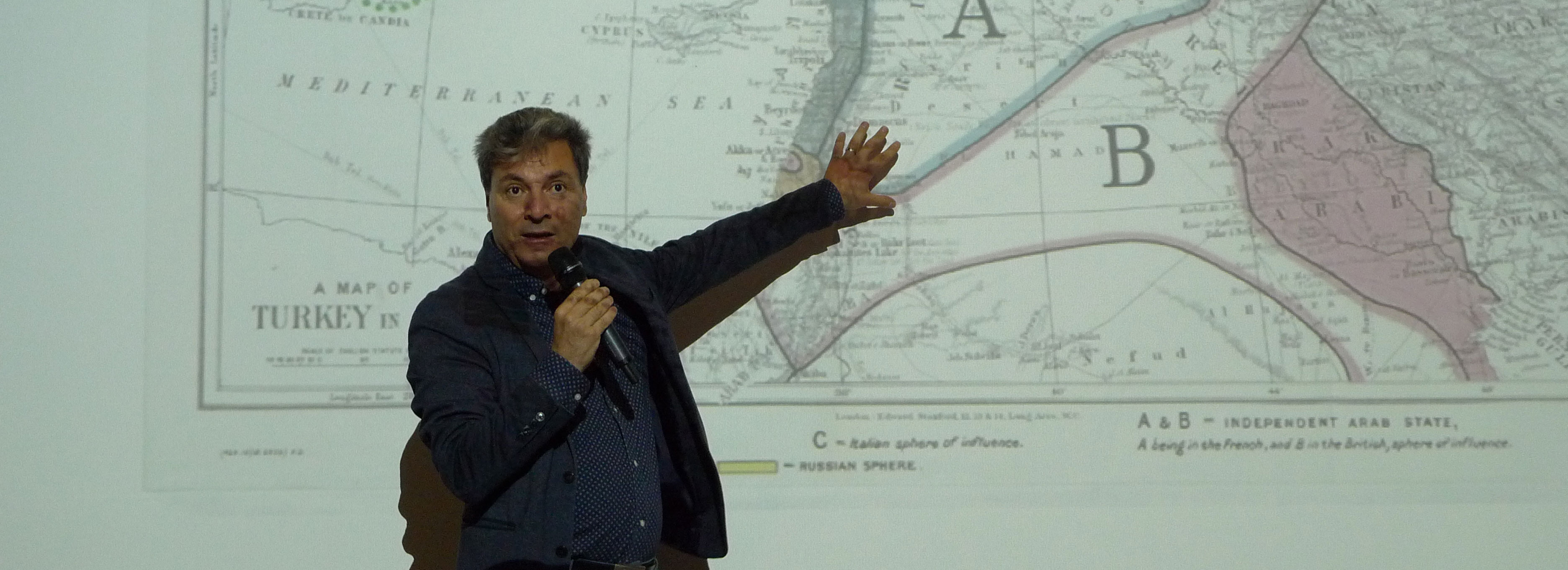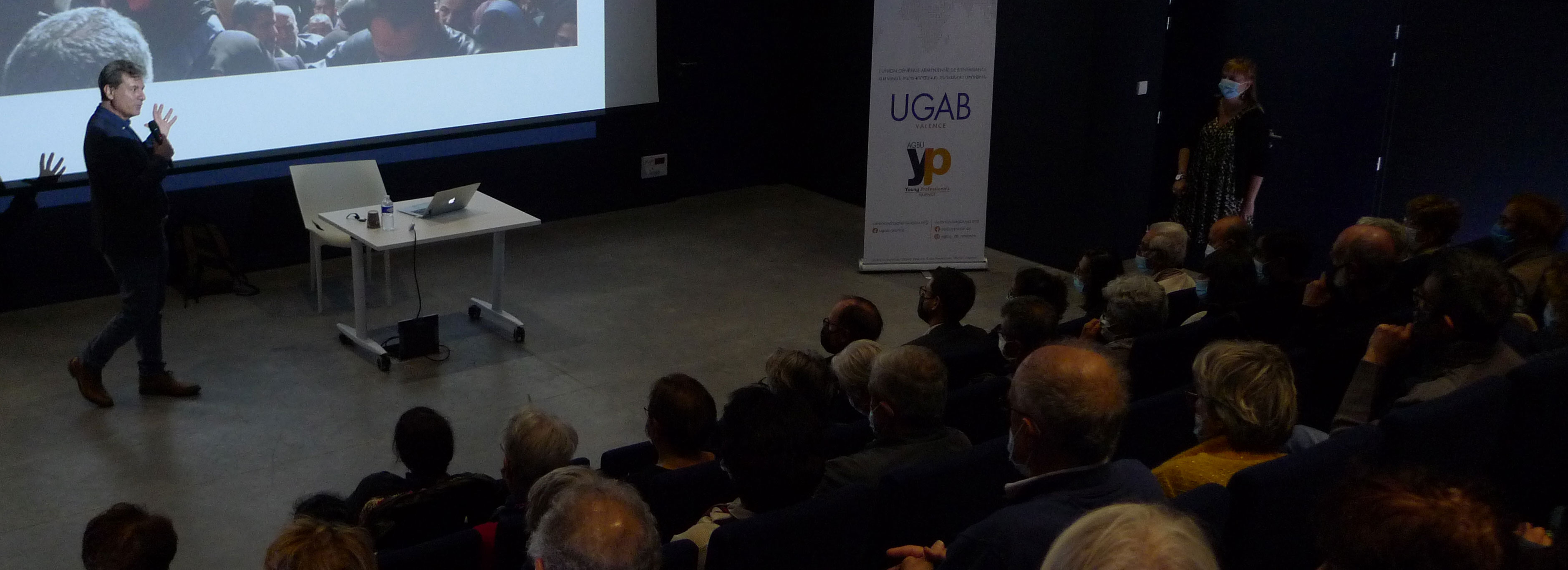15 October 2021
On October 7, the Centre du Patrimoine Arménien (CPA) in Valence, France, hosted a lecture by historian and political scientist Vicken Cheterian on “War, Genocide and Remembrance in the Modern Middle East”. Co-organized by AGBU Europe, CPA and AGBU Valence, the event was part of the European Remembrance project “Ideas & their Consequences: Genocide and International Justice after 1919”, carried out by AGBU Europe in partnership with the Lepsiushaus in Potsdam, EUJS and Phiren Amenca, with the support of the Europe for Citizens Programme of the European Union.
The lecture focused on the contemporary mass violence observed in three modern nation-states – Syria, Iraq and Turkey – with the attempt to understand the origins of the violence and of the confessional divisions that characterize the region today. According to Cheterian, a fundamental problem resides in the fact that after WW1, the emerging nation states in the Middle East, founded on Western secular models, have constructed their national history based on a narrative that is completely oblivious of their ottoman past.
To consider ottoman history also means acknowledging the presence and the important role played by the Christian minorities living in the empire, namely the Armenians, the Assyrians and the Greeks. According to Cheterian, “it is impossible to understand what is happening today in the Middle East if we censor the history of the Armenians and if we don’t consider the Armenian genocide for what it is: a major mass crime with no consequences for its perpetrators and tremendous ramifications in the region”.
In his presentation, Cheterian explained that the modern states of Turkey, Syria and Iraq are built around one fundamental institution: the military. Looking at the history of this institution, Cheterian described that officers of the early national Syrian, Turkish and Iraqi armies were often former Ottoman officers, adding that “the army that had committed the first modern genocide also set the foundations of the emerging states in the Middle East”.
In his conclusion Cheterian underlined that perpetrators of genocide became the founders of modern, post-Ottoman states. In official historiography, they continue to be celebrated as national heroes, justifying mass violence from which the entire Middle East suffers today. According to Cheterian, breaking with this heritage necessitates “looking back at the dark pages of our common history, as descendants of victims and of perpetrators of past mass violence, and understand how we are all still conditioned by it”.





